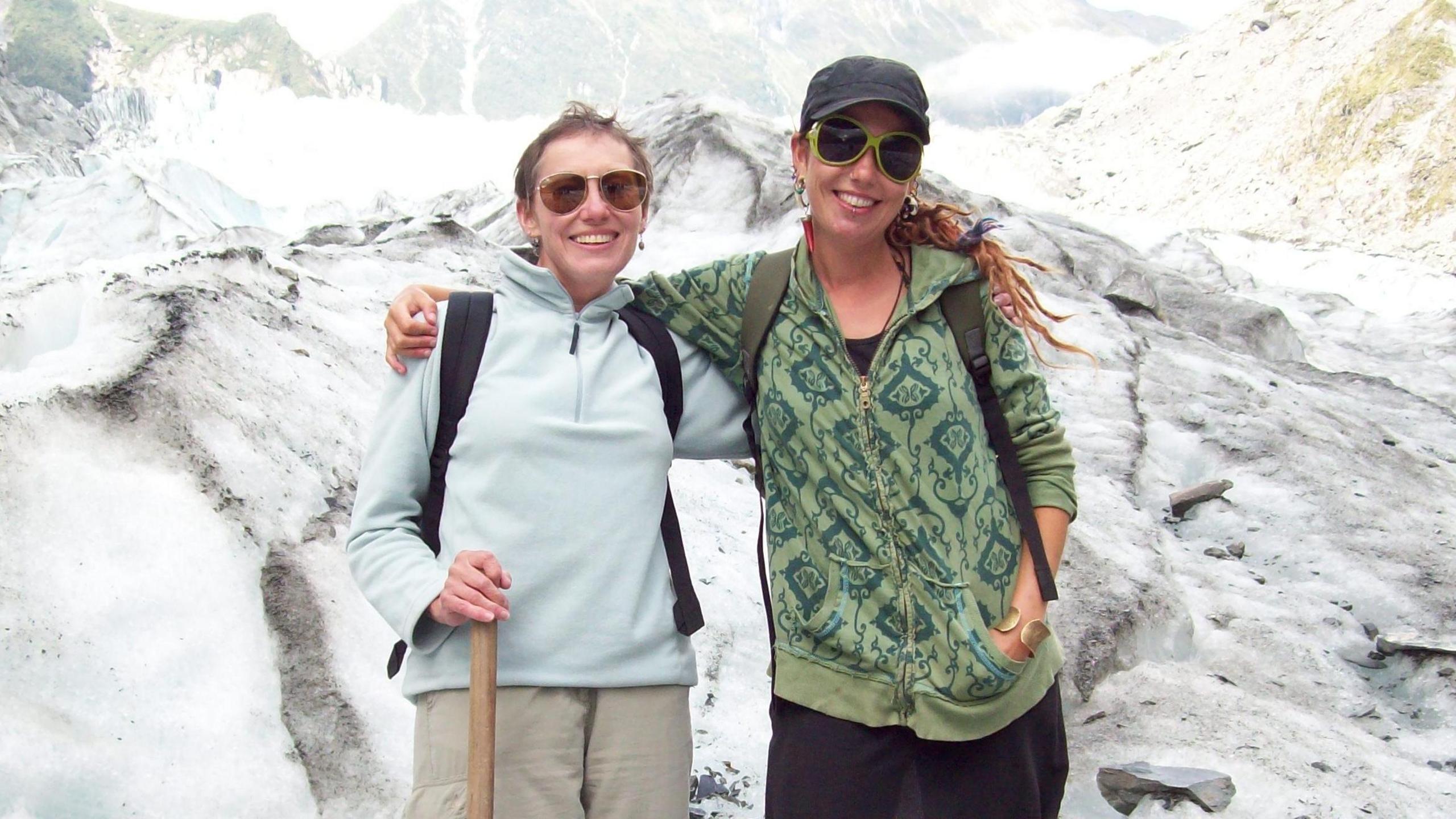Grief rave helps mourners celebrate loved ones
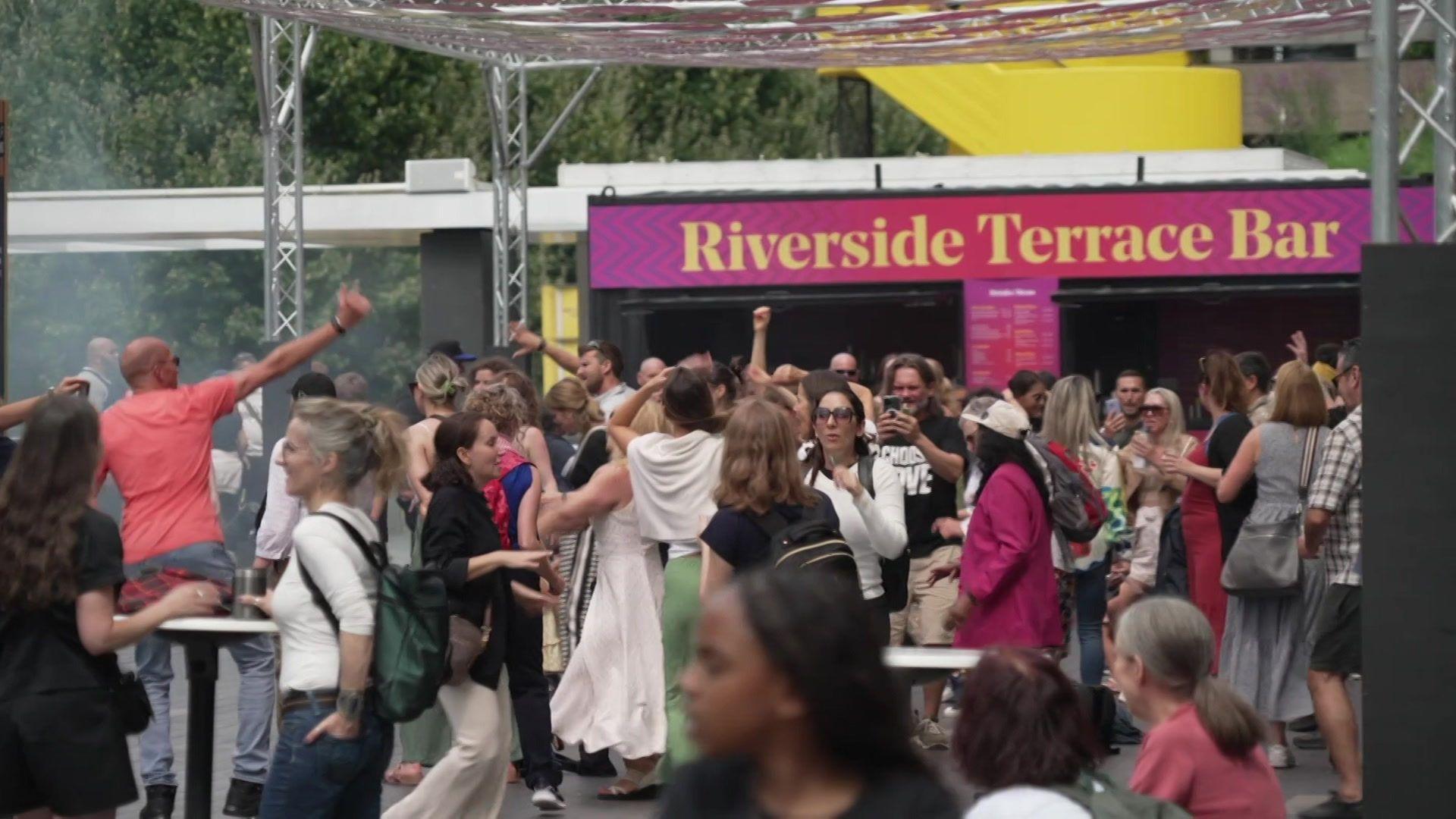
Organisers say the event allows people to "express their own individual grief" but "dance together"
- Published
It looks like a rave. It sounds like a rave. And it is a rave. But everyone here has one thing in common - they have all lost a loved one.
At the Southbank Centre in London on Sunday, people gathered for what is being called a "grief rave" – an event that combines music, movement and memory to help people process bereavement.
Millicent Blackwood attended in honour of her mother, who died almost four years ago.
"I grew up watching my mum dance in the kitchen when she was cooking Sunday roast," she said.
"When I heard on the radio, there was this grief rave. What better way to represent my mum and celebrate her life."
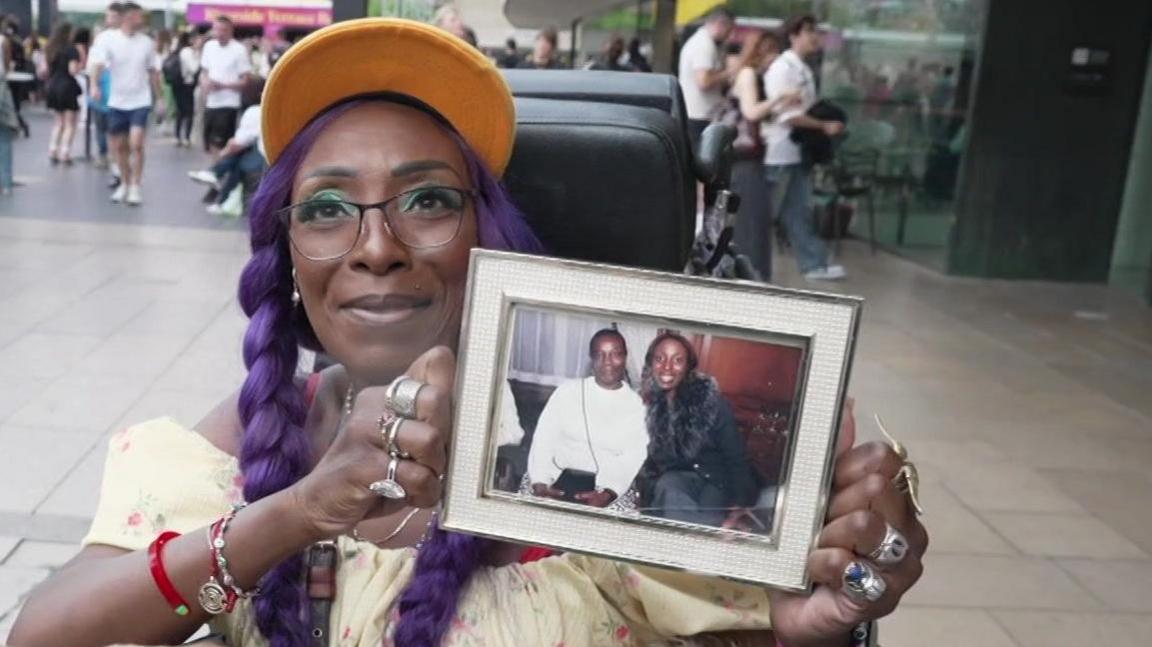
Millicent Blackwood attended the rave to celebrate her mum's life
The grief rave was founded more than three years ago by Annie Frost Nicholson and Carlie Attridge.
"I lost a friend few years ago," said Ms Attridge, who also founded The Loss Project, an organisation supporting people through grief.
"She was an old-school nineties raver, and I remember her every year by dancing to her favourite rave tune."
She said they wanted to "create a space where people can express their own individual grief, but collectively join in and dance together".
"It kind of creates a sense of joy and hope," Ms Attridge added.
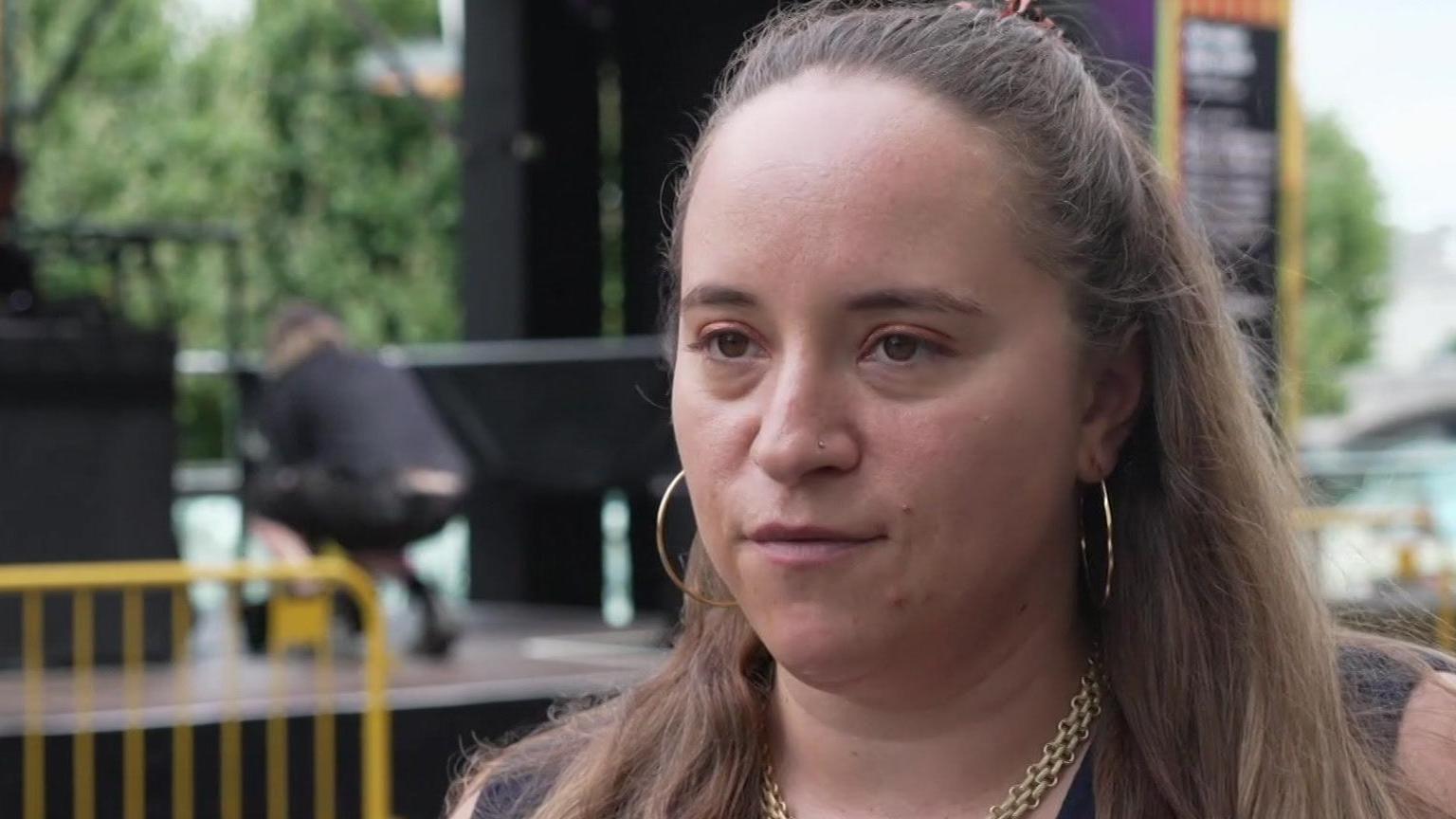
Carlie Attridge says the event can help people process grief
One feature of the event is the Fandango Discoteca, a small soundproof pod where visitors can be alone, choose a song that reminds them of someone they have lost, and grieve however they choose.
Emma Spearing lost her twin sister Charli more than a decade ago. She said spaces like this helped her keep her sister's memory alive.
"I would say it's taken me 10 years to find out who I am without being part of a pair, she told BBC London.
"So our relationship was very much like Batman and Robin. She was Batman and I was Robin."
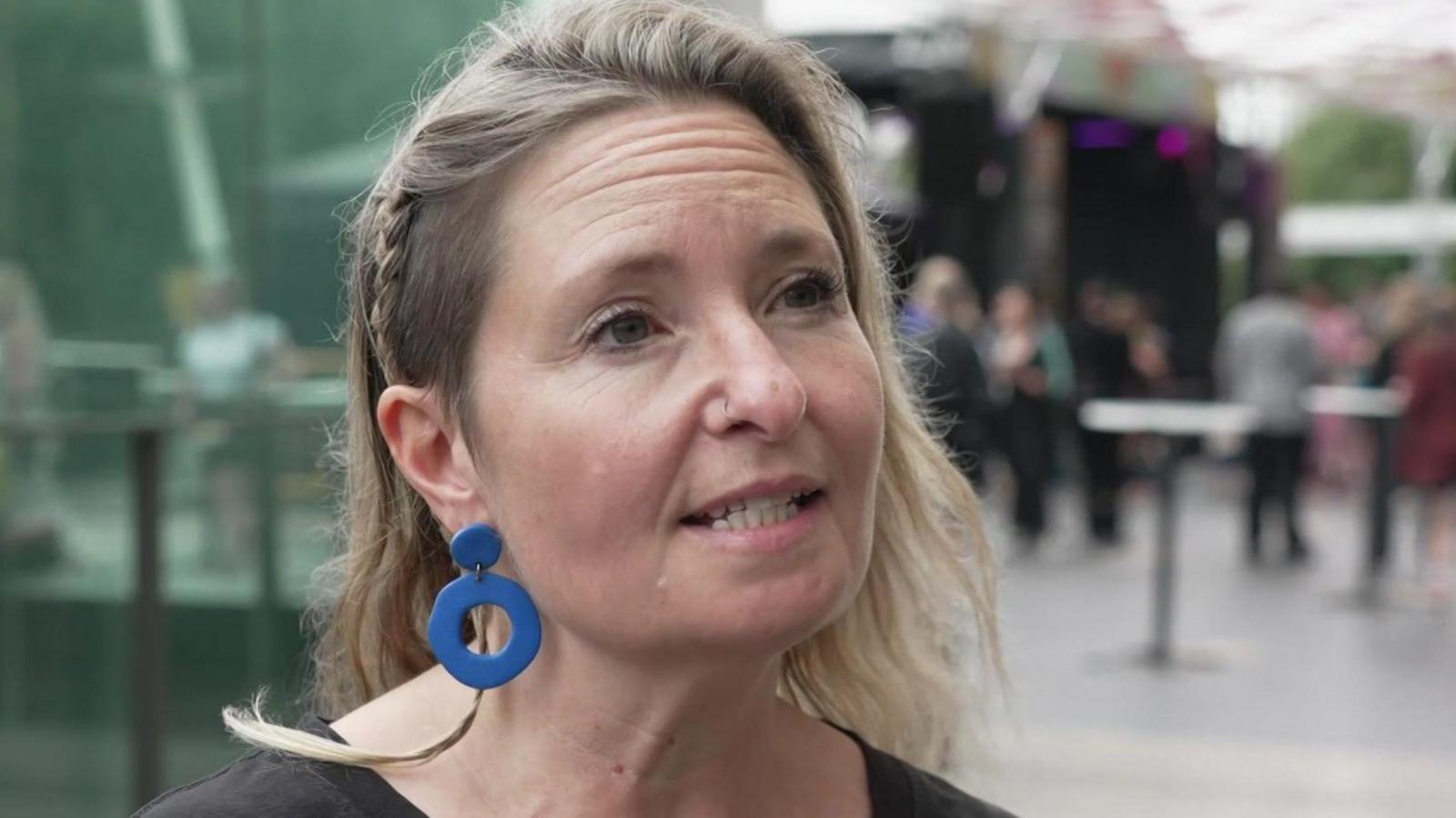
Emma Spearing says events like the rave allows her to "keep writing the story" of her twin sister
"The person that dies, they don't leave us. Their story doesn't end when they die. We keep writing their stories," Ms Spearing added.
"And so by bringing your person and listening to their music again. Just allowing that little seed of who they are to just grow and influence the people around you.
"I think that's what this space allows as well. It's about celebrating that person."
Listen to the best of BBC Radio London on Sounds and follow BBC London on Facebook, external, X, external and Instagram, external. Send your story ideas to hello.bbclondon@bbc.co.uk, external
Related topics
- Published20 November 2022
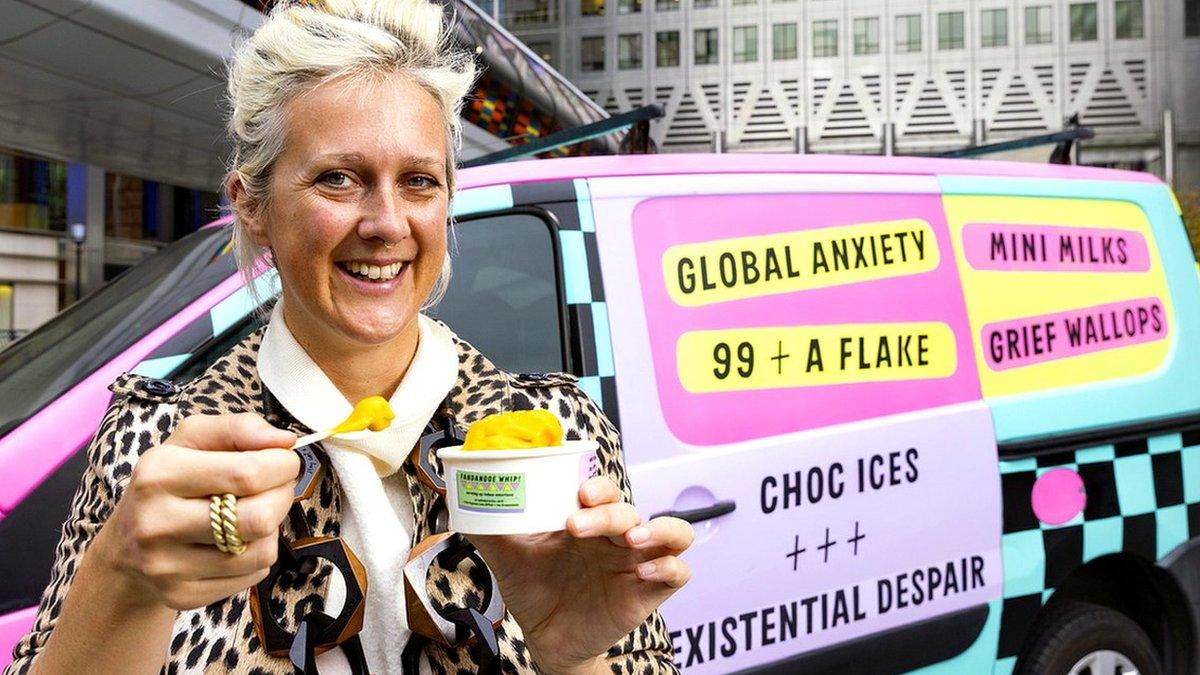
- Published28 February
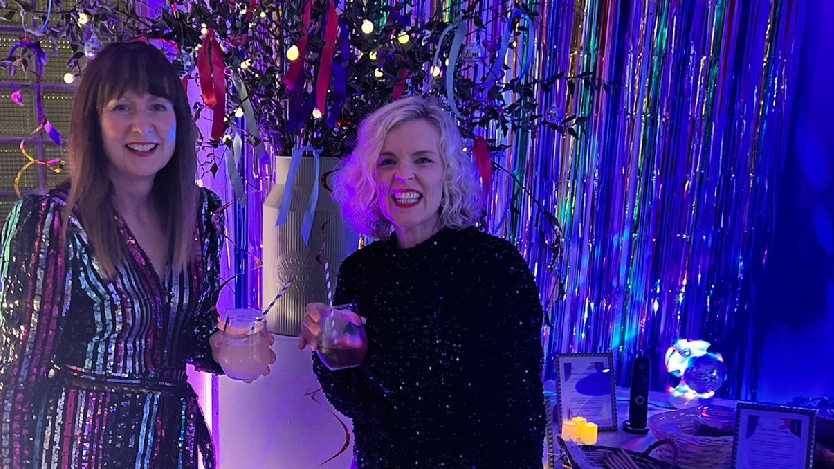
- Published5 July
